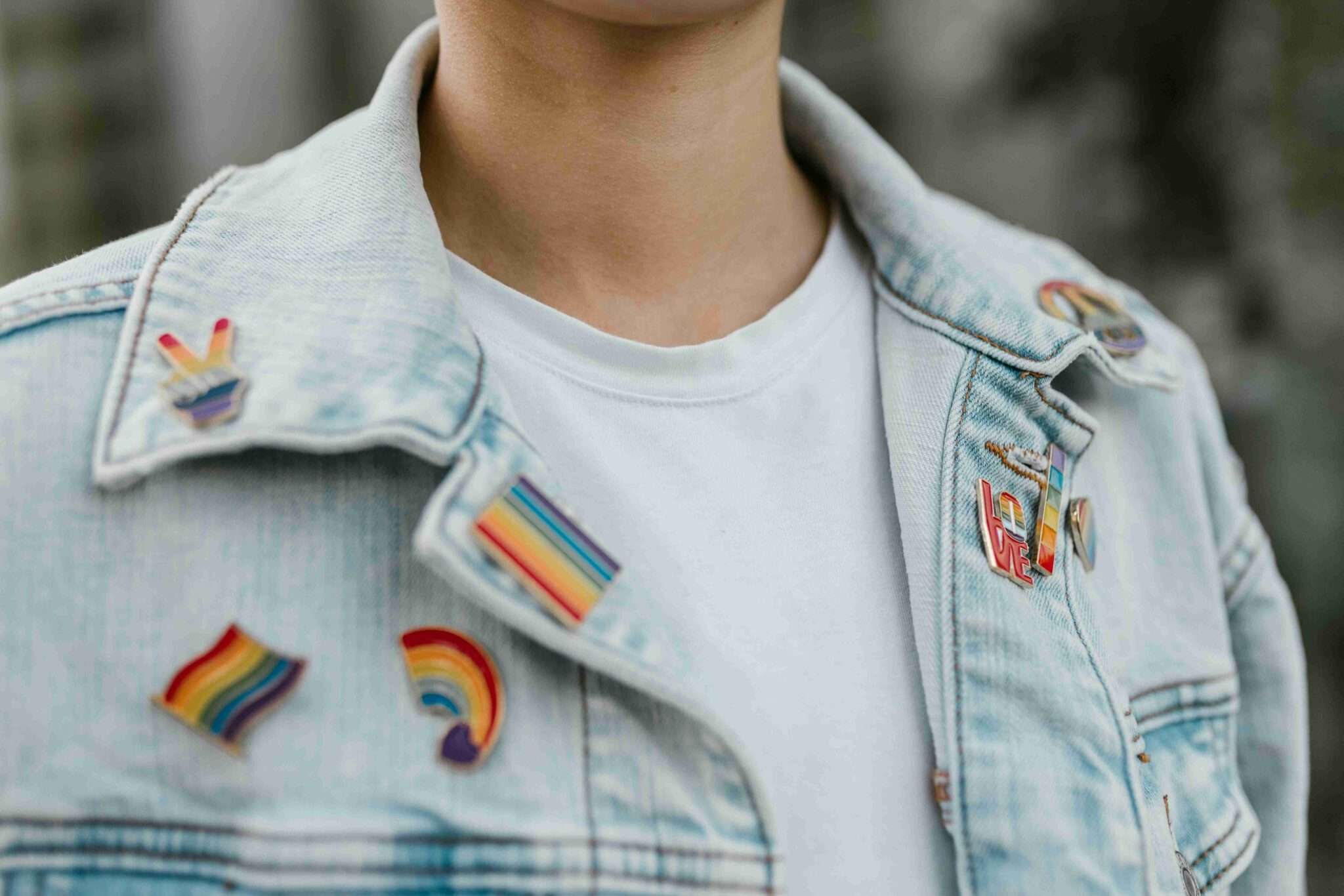
Recognizing LGBTQ Stories
May is a month of celebration and awareness for the LGBTQIA2S+ communities, with days such as International Day Against Homophobia, Transphobia, and Biphobia, and Pansexual and Panromantic Day of Awareness. For this month’s blog post, I reached out to my queer friends who were willing to speak about their experience in the workplace as Generation Zs. As the Gen-Zs enter the workforce, it’s important to understand the ever-changing landscape of diversity, equity, and inclusion and how crucial it is to younger demographics in fostering an inclusive and equitable workplace.
The Importance of Inclusivity in the Workplace
Deloitte’s research unveils that high-performing teams are both cognitively and demographically diverse. A complex problem typically requires input from six different mental frameworks: evidence, options, outcomes, people, process, and risk. In actuality, no one person is good at all six frameworks, hence why we need a to hire complementary team members. Diversity of thinking is powerful as it creates a strong and broad narrative for diversity, where everyone feels significant and part of a shared goal. It is no surprise that diversity drives growth. Different perspectives bring innovation and challenges the norm of what it should be. Diversity is the presence of difference, in terms of identities and lived experiences, within a given setting.
A person is not diverse. Diversity can only exist in relationship with others.
Creighton (he/him), aged 20, has mentioned that he appreciates it a lot more when companies and workplaces try to show that they are a safe space to be themselves. “Something as simple as a rainbow flag or asking for my pronouns shows that they are taking the steps to be a safe space. I can stop masking.” Masking in not something new, humans have donned masks since the beginning of time. We wear masks with our friends, colleagues, families, and partners. However, LGBTQIA2S+ people wear them to be safe.
“As someone who is gay, I thrive in places where I believe I can perform without judgement and in a company whose values do align with my own. It is hard and jarring to feel like I must be something I am not.”
Creighton recognizes his privilege when it comes to being a cis male stating that, “I do recognize that I have privilege, and I can pass for straight and white a lot of the time. I feel as though I can secure interviews a lot more. I’m the default setting for a successful employee.” Working in the creative industry as an artist, musician, and an audio engineer has enabled him to be himself more than corporate workplaces. “I know we’re tired of hearing it, but representation does matter. Hiring queer employees tells me that I don’t have to pretend to be something I’m not. When I was working in XYZ company, everyone looked the same, there was no diversity [in terms of age, race, gender, etc.] It was stuffy and restricting. I was surrounded by older people who did not understand the concepts of queerness, gender, and sexual orientation. I don’t want to go into these places to educate people so that I can feel safe. The work should already be done, or at least in the process of change.”
“In job applications, there is a section to declare your identity, and I think it’s a net positive. It’s there to really help the ones who are marginalized, and I think it’s a great addition. Sometimes I specifically look for those roles because I know that I can be useful as a gay, half-white half-Asian man.” Creighton adds, “I recognize my privilege as a cis male, where these are my default settings, but I feel like someone who faces further inequalities are further marginalized would have it much worse.” Creighton’s feelings are not far off, with a study by economists Kline, Rose, and Walters revealing that name bias is still prevalent in 2024. The study was conducted to analyze “Black” names and “white” names as well as female and male names, among other demographic differences. The results showed that white and female names received the most callbacks, followed closely by white male names. “You can tell a company’s culture simply by those who are hired,” says Creighton.
Discrimination that occurs in the workplace is not obvious and blatant. In fact, they regularly appear in the forms of microaggressions and oppressions. Spencer (they/them), aged 24, mentions that they would rather know that a company is not inclusive rather than be misled by an organization that promotes inclusivity but does not practice it. “I’d rather just know that I need to protect myself, rather than come in with my walls down and then be misgendered constantly.”
May 17: International Day Against Homophobia, Transphobia, and Biphobia
I asked Spencer what they thought about days to celebrate different identities. “I think it’s great to have days to celebrate and uplift people,” says Spencer. “It’s incredibly important to celebrate different joys when the colonizers and oppressors have labelled them unworthy of existing.” For example, before 1952, homosexuality was listed as a sociopathic personality disturbance, describing it as a mental illness. In 1987, homosexuality was removed from the Diagnostic Statistical Manual (DSM) as a mental disorder.
Spencer goes on to say that “there is still so much ignorance and shame around people that are HIV+, and there needs to be more change. There needs to be more financial aid supporting the queer community.”
The number one way to help communities is to put money where your mouth is. Financial aid helps the community directly. Having the power to improve the lives of others is a privilege and one that comes with its own sense of obligation. Acting on these strong feelings of responsibility is a great way to support our own beliefs and believe that we are living in a way that is true to our beliefs.
June is Pride Month!
Pride month is a time where LGBTQIA2S+ people celebrate their journey with their identities in a form of community with parades and events. I asked Spencer about how they felt about workplaces celebrating Pride month. “I’m thankful that I do have a lot of alignment in my work that I don’t have to seek for a community in something such as Pride month. Although I do take this opportunity to learn about historical figures, and the milestones of Pride. I don’t attend the parades as I feel privileged and lucky in finding my own personal community. I celebrate Pride and my identity all year round. Pride month feels very Western and colonized, and I personally don’t feel connected as an Asian person. Pride month in Vancouver feels very white-gay centered.” While Spencer does not partake in the events, they do understand the value of having community-centered events that are for the public. “I am desperate for more East Asian activism. There needs to be depth to activism.”
Spencer shares with me that they have always been fortunate enough to be working around and with queer people, and they understand it is a privilege that not many have.
“I’m grateful that queer people have become normalized in the workplace for me. There isn’t the assumption that people are straight. Language is automatically inclusive, and this signals to me that this is a safe space. Temperature checking people is something that I must constantly do, and it takes a lot of mental stress off my plate if it is a safe space.”
How Do We Support the LGBTQIA2S+ Community Year-Round?
Showing support for the LGBTQIA2S+ community must be a year-round thing. Allyship is a verb, not an adjective. It is not something you can claim, it is something you actively do. Allies must put in the work and effort to be consistent and unlearning those ideas of white supremacy and perfectionism. There is no one right way to do things, we need to move on past the idea of perfectionism and white supremacy.
“White supremacy culture trains us all to internalize attitudes and behaviors that do not serve any of us. A belief that we can be perfect, or should be perfect, raises the questions: who decides what perfect is? Why would we want to be perfect?… To think we can or should be perfect, to worship the written word, to insist on one right way, to demand comfort when we are causing harm – any and all of the characteristics on the list are designed to make us forget that we have access to multiple ways of being and knowing, ways that white supremacy has suppressed and oppressed for the purpose of creating confusion about what is important while encouraging us to forget what we already know.”
Financially Supporting Non-profit Organizations
The main way we can show support to the LGBTQIA2S+ community is to put monetary means to organizations that are doing the work. By donating to these organizations, you can contribute directly to initiatives that aim to create positive change in society. Additionally, donating to organizations helps community development, helps improve infrastructure, provide essential services, and support marginalized groups. Non-profit organizations also often respond to urgent needs such as disaster relief or humanitarian crises. Donations provide immediate assistance to those affected by such events, helping to alleviate suffering and rebuild communities.
Consistent Effort and Curiosity to Learn
The ‘what about me’ effect combines chronically online culture with individualistic culture. It’s when people refer to a topic that does not relate to them at all, but they somehow find a way to make it about them. For instance, this bean soup recipe on TikTok has gone viral. The bean soup is to help people with anemia and it’s a good rotational meal when a woman is on her period as an alternative way to consume extra iron. As you might expect from a bean soup recipe that the main ingredients are, well, beans. People who do not like beans are asking for replacements for the soup’s main ingredients. Comments such as “I don’t like beans, what can I use as a substitute?” and “Wait what if I don’t like soup?” can be found on the video.
Spencer mentions that the ‘whataboutme-ism’ from straight allies needs to end. “The decentering of the self is crucial to learning about systems and structures of power. We all exist and there is nothing wrong inherently with being privileged, it’s about knowing our place. Knowing when to speak and when we are being spoken to. It’s about being gracious, kind, understanding, basic human empathy.”
Decentering is the practice of removing our own experience, intention, and feelings from the conversation, and putting the focus on the impact of what we say and do on other people. Gerli, Vargas and Gonzalez say that “decentering is one access to inclusion and belonging.”
Resources and Profiles

Creighton is an aspiring audio engineer with a passion for music and sound. He graduated from Langara College and is now making music along with accepting freelance work. He is a half-Filipino, half-white long-time uninvited settler working and living on traditional, unceded, stolen lands of the Skwxwú7mesh (Squamish), Səl̓ílwətaʔ/Selilwitulh (Tsleil-Waututh), Stó:lō, and xʷməθkwəy̓əm (Musqueam) Peoples.
Find out more in Creighton website
Creighton Taylor (he/him/his)
Audio Engineer, Artist and Musician
Creighton, @creightonlmao, cis gay man, half-white, half-Filipino, aged 20, long-time settler on the traditional, unceded lands of the Musqueam, Squamish, or Tsleil-Waututh peoples, https://creightonlmao.com/

Master’s in Gender, Sexuality, and Women’s Studies and a BA in Media & Communications and minored in Sociology and Gender Studies Spencer is a first-generation Han Chinese-Canadian and long-time uninvited settler working and living on traditional, unceded, stolen lands of the Skwxwú7mesh (Squamish), Səl̓ílwətaʔ/Selilwitulh (Tsleil-Waututh), Stó:lō, and xʷməθkwəy̓əm (Musqueam) Peoples.
Find out more on Spencer’s LinkedIn.
Spencer Lee (they/them/their)
Bourke, J., & Dillon, B. (2018). The diversity and inclusion revolution: Eight powerful truths. (22), 84.
Kline, P. M., Rose, E. K., & Walters, C. R. (2024). A Discrimination Report Card. National Bureau of Economic Research.
https://www.nber.org/system/files/working_papers/w32313/w32313.pdf
Okun, T. (2021). Characteristics, White Supremacy Culture. WHITE SUPREMACY CULTURE.
https://www.whitesupremacyculture.info/characteristics.html
Gerli, E. Q., Vargas, Y., & Gonzalez, D. (2023, May 18). DEIB, Microaggressions, and Decentering: A Path to Cultural Shift in Organizations. League of California Cities.
https://www.calcities.org/docs/default-source/city-attorneys/5.2023-spring-gonzalez-gerli-deib-microagressions-and-decentering.pdf?sfvrsn=f90f98e_3

